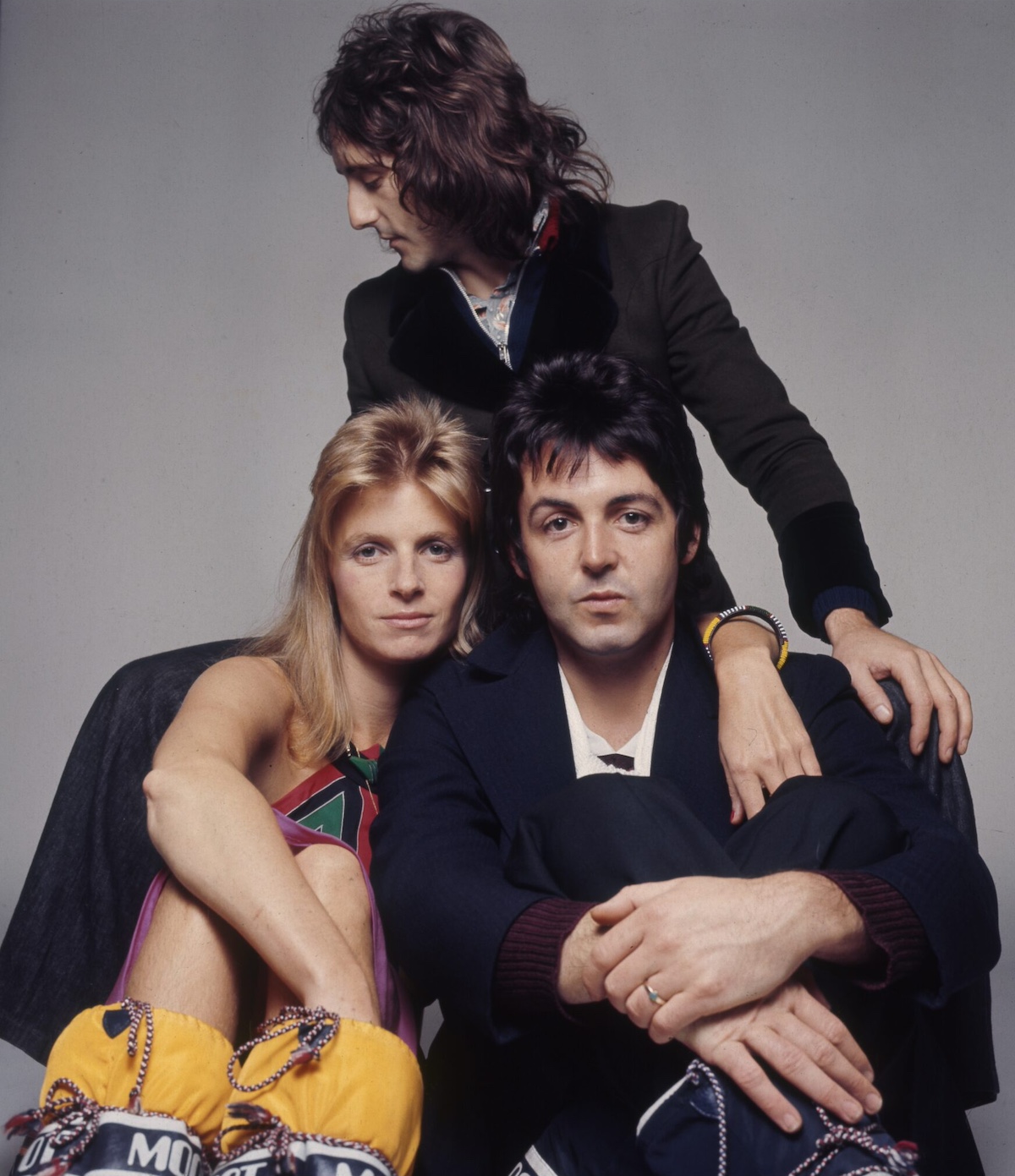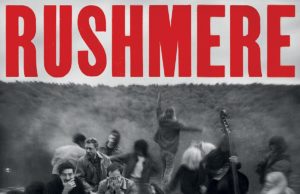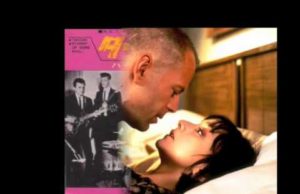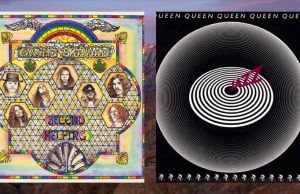 I have been devouring the new McCartney: A Life In Lyrics podcast. It’s actually very good and features a very natural and relaxed Paul, who shares interesting and honest backstories of how many of his famous songs came to be, with an emphasis on what they say, where the ideas came from and to whom they’re directed. The best thing about it is Macca isn’t playing “Paul McCartney.” It really feels like we’re just flies on the wall to a conversation between two mates — in this case, Irish poet Paul Muldoon. It’s impossible not to notice, however, that the voice of my favourite vocalist has changed dramatically in the past few years.
I have been devouring the new McCartney: A Life In Lyrics podcast. It’s actually very good and features a very natural and relaxed Paul, who shares interesting and honest backstories of how many of his famous songs came to be, with an emphasis on what they say, where the ideas came from and to whom they’re directed. The best thing about it is Macca isn’t playing “Paul McCartney.” It really feels like we’re just flies on the wall to a conversation between two mates — in this case, Irish poet Paul Muldoon. It’s impossible not to notice, however, that the voice of my favourite vocalist has changed dramatically in the past few years.
McCartney will be 82 years old in June. He’s supposed to sound old. I have no problem with that — it happens to us all. It’s already happening to me. My day job is in radio broadcasting. It’s fairly common to play archival pieces featuring co-workers of mine who have been here for many years. I’m always surprised at just how different their voices sound, even five or 10 years earlier. We’ve been listening to McCartney’s voice for more than 60 years.
He’s got 26 post-Beatles albums he sings lead vocals on, and 12 studio albums with The Beatles. He’s played more than 1,000 solo concerts, in excess of 200 with Wings and well over 1,500 with The Beatles. Basically, 50 shows a year since 1962 — and his shows in the past few decades are more than two hours long. In December 2023 alone, the octogenarian played seven shows — and four mini-shows, billed as VIP ticketed soundchecks. They’re still 10-12 songs in length and happen the same day as the main show. Adding it up, Macca sang around 250 songs live in December.
My point is, there’s a pile of mileage on that voice. And he hasn’t made it easier on himself like many other artists of his generation, or slightly younger. McCartney still performs his songs in the key they were recorded in, which must put a terrible strain on his voice.
When my dad was approaching Paul’s age, his voice changed too — but like many men, my dad’s voice pitched up. McCartney’s speaking voice is lower, and lately — warbled. In the Lyrics podcast, sometimes it sounds like he’s eating. He might be, but it goes beyond that. In fact, I think the change in his speaking voice is more dramatic than that of his singing voice.
The difference between Paul’s singing on McCartney (1970) and McCartney II (1980) is barely noticeable. But McCartney III (2020) is quite dramatic. I personally didn’t notice much of a change in his voice until Flaming Pie (1997), and even that was slight and only noticeable on some songs. To my ear, it’s really changed dramatically since Chaos And Creation In The Backyard (2005).
I try not to think about what peak McCartney (1968-1982) would have sounded like, singing The Song We Were Singing from Flaming Pie (1997) or Ever Present Past from Memory Almost Full (2007). It makes me sad to contemplate such a thing, and effectively just makes me feel old as a result. It’s difficult, but important, to actively resolve to not compare him against his 30-year-old self. Because it may not just be his ability to sing — he may actually write music in a more limited way, knowing he can’t sing it the way he used to. I imagine he would have written much more freely decades ago than he does now — knowing full well that there was pretty much nothing he couldn’t sing. The “man of 1,000 voices” and all that — Macca could be soft and sweet or could belt with incredible power, and everything in between. Little Anthony or Little Richard.
So, what happens to our voice as we age and when should we expect it to be really noticeable? Usually around age 50, apparently. Just normal aging affects the larynx and vocal cords in three ways — shrinking the muscles (atrophy), stiffening of connective tissues, or thinning of the mucous membranes which protect them. This can have a variety of effects. In men — like my dad — it makes their voice higher. But not everyone. It’s common for women’s voices to get lower.
Singers tend to lose the top of their range due to the vocal cords becoming less flexible. Most people will experience a loss of their ability to project their voice the way they once could. Similarly, they will have a tougher time singing or talking for prolonged periods (endurance) — and when they do, their voices have less volume. Voices lose resonance, may be shaky, weak or breathy.
Many fans have noted Paul having a red tongue at times — speculated to be the result of pre or pro-performance lozenges. I suppose this helps, like tea, loat of water, lemon, etc. — but there are also procedures available like Botox, which is specifically for vocal tremors. Vocal cords can also be injected with a temporary filler material or longer-lasting human fat, which is usually taken from the abdomen. A step up from that is a procedure called thyroplasty, during which implants are placed into the vocal cords. More common is voice therapy sessions which teach people tips for reducing strain on their voice and ways to perform for longer.
All sources indicate, proper, mindful technique and staying smoke, booze and stress-free will delay the onset of aging on your voice. Shouting should also be avoided, and airplanes — which apparently dry you out. Talking on the telephone is often bad, because people slump — preventing their breath from moving efficiently.

Certainly, Macca has been beset with most of these things. He admits to having been a bit of a boozer at times as a means of dealing with the pressures of fame and the depression he felt following the breakup of The Beatles. He had a fondness for weed up until just a few years ago, and was a heavy smoker from his teen years to around 1981. He has been occasionally spotted with a cigarette or a joint — going viral on social media two years ago when he and daughter Stella were hanging out with fans in Jamaica and he took a drag off a smoke somebody handed him.
McCartney first tried to quit smoking in 1973 while he, Denny Laine and Linda were recording Band On The Run in Lagos. McCartney was finding the studio stuffy, so he went outside for some fresh air. The air outside was no better, and McCartney suddenly had pain in his chest, struggled to breathe and fainted. Doctors told him he was smoking too much. It scared him,and he was already stressed out like crazy — under pressure to come up with a hit for Wings, and the fact that he’d just been mugged on the street.
These days, Sir Paul does have a few pre-show rituals to help his voice, though he’s never actually figured out for certain if they’re scientifically sound. For starters, for the past decade or so, McCartney has copied something he watched Little Richard do, back when they played together in Hamburg in the Beatles pre-fame period: Steaming. In the hour leading up to a gig, Paul inhales vapours from a kettle of boiling water by putting a towel over his head to direct the steam into his face. He also says he gargles salt water.
So much for Sgt. Pepper.
• • •
Area Resident is an Ottawa-based journalist, recording artist, music collector and re-seller. Hear (and buy) his music on Bandcamp, email him HERE, follow him on Instagram and check him out on Discogs.










































